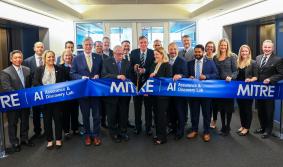AI Caucus could help generate support for much-needed legislation

The Congressional Artificial Intelligence Caucus could help build support for much-needed AI legislation by educating members and their staff on the technology, Rep. Jerry McNerney, D-Calif., said Friday.
McNerney co-chairs the caucus, which is working with relevant congressional committees and the National Institute of Standards and Technology to develop a common language around AI.
An AI lexicon will go a long way toward helping members of Congress understand issues around AI like the need to minimize bias or develop a privacy program better than China‘s to outcompete the U.S. adversary globally.
“When we develop legislation, what we need to do is look at the different government agencies,” McNerney said during an Institute for Security and Technology event. “Is [NIST] able to create data standards so that we understand the biases inherent in each dataset? Can we use [NIST] to create an algorithm testing program so that we understand what particular biases are in the algorithms?”
McNerney hopes the caucus’ work will pave the way for legislation like his own AI in Government Act. First introduced in 2018 and again in 2019 by a bipartisan group of senators, McNerney’s version was proposed in May and passed the House in September.
If signed into law, the bill would:
- Create an AI Center of Excellence within the General Services Administration for providing technical expertise to agencies,
- Establish an advisory board for addressing governmentwide AI policy challenges,
- Direct agencies to develop AI governance plans, and
- Have the Office of Personnel Management either create a new or update an old occupational series with AI skills and competencies.
Simply resurrecting Congress’ Office of Technology Assessment, which was shuttered in 1995, won’t cut it, McNerney said.
“We need to revise that capability so that we have a group of technical experts that can advise the Congress, and also the president needs maybe his own independent commission,” he said. “But we need experts on the science.”
Those experts also need to understand how AI intersects with pressing issues like the coronavirus pandemic and space travel, McNerney added.
The caucus has already held at least four meetings with industry on topics like bias and securing personal information with AI, but it will soon lose its other co-chair Rep. Pete Olson, R-Texas, who’s not seeking reelection.
Olson’s plan is to keep the co-chairs bipartisan, and he’s identified several Republicans capable of filling his shoes — though he wouldn’t say any names Friday.
“We’ve got some people that will surprise you,” Olson said. “But you’ll be happy with the surprise.”





